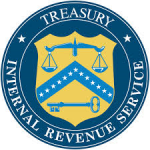 Take Advantage of Credits and Deductions
Take Advantage of Credits and Deductions
Are you, your spouse or a dependent off to college? If so, here’s a quick tip from the IRS: some of the costs you pay for higher education can save you money at tax time. Here are several important facts you should know about education tax credits:
- American Opportunity Tax Credit. The AOTC can be up to $2,500 annually for an eligible student. This credit applies for the first four years of higher education. Forty percent of the AOTC is refundable. That means that you may be able to get up to $1,000 of the credit as a refund, even if you don’t owe any taxes.
- Lifetime Learning Credit. With the LLC, you may be able to claim a tax credit of up to $2,000 on your federal tax return. There is no limit on the number of years you can claim this credit for an eligible student.
- One credit per student. You can claim only one type of education credit per student on your federal tax return each year. If more than one student qualifies for a credit in the same year, you can claim a different credit for each student. For example, you can claim the AOTC for one student and claim the LLC for the other student.
- Qualified expenses. You may include qualified expenses to figure your credit. This may include amounts you pay for tuition, fees and other related expenses for an eligible student. Refer to IRS.gov for more about the additional rules that apply to each credit.
- Eligible educational institutions. Eligible schools are those that offer education beyond high school. This includes most colleges and universities. Vocational schools or other postsecondary schools may also qualify.
- Form 1098-T. In most cases, you should receive Form 1098-T, Tuition Statement, from your school. This form reports your qualified expenses to the IRS and to you. You may notice that the amount shown on the form is different than the amount you actually paid. That’s because some of your related costs may not appear on Form 1098-T. For example, the cost of your textbooks may not appear on the form, but you still may be able to claim your textbook costs as part of the credit. Remember, you can only claim an education credit for the qualified expenses that you paid in that same tax year.
- Nonresident alien. If you are in the U.S. on an F-1 student visa, you usually file your federal tax return as a nonresident alien. You can’t claim an education credit if you were a nonresident alien for any part of the tax year unless you elect to be treated as a resident alien for federal tax purposes. To learn more about these rules see Publication 519, U.S. Tax Guide for Aliens.
- Income limits. These credits are subject to income limitations and may be reduced or eliminated, based on your income.

